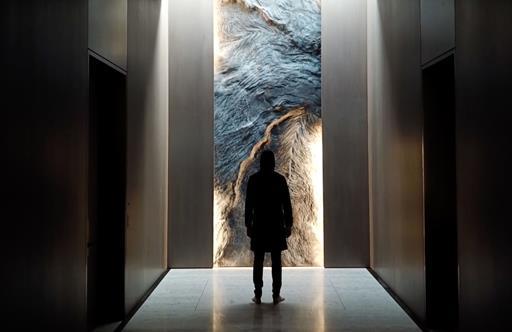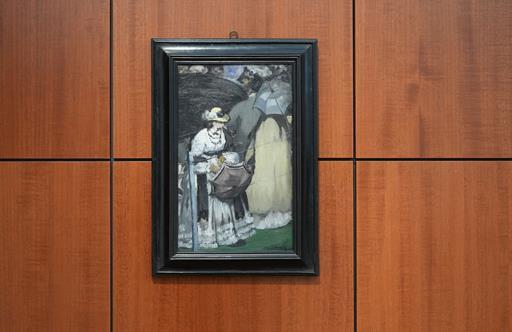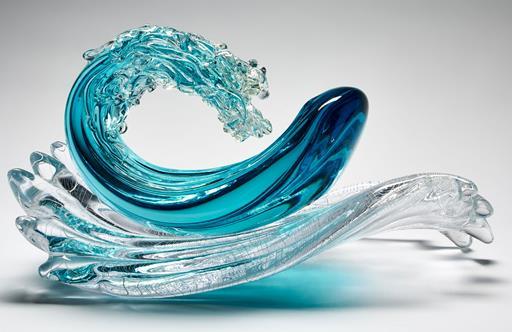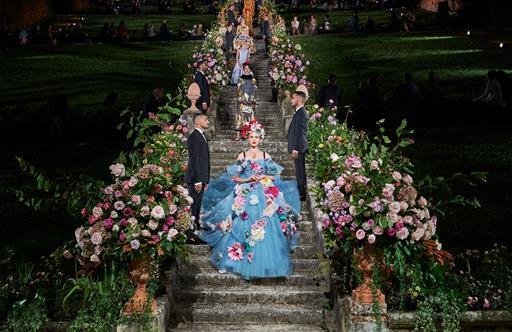Another Perfect Season in the Sun
The sun rises over the pine-sweet hills of Ibiza, and with it, another summer unfurls. With a host of new openings and headline-grabbing refurbs, the White Island is hotter than ever.
Ibiza, more than most places, understands that being “in season” isn’t just about dates on a calendar. Yes, there are opening and closing parties, but ultimately, it’s about the ritual of return – a homecoming for ibicencos who have spent the cooler months travelling the world or enjoying the quiet of the island in winter, holed up in their fincas. For dancers, hospitality workers, DJs and visitors, each keener than the next to reclaim “their” Ibiza. The beach beds fill, old caminos hum, and new stories are written under the same ancient sky.
To understand Ibiza today is to trace a thread way, way back. Maya Boyd, author of Assouline’s pink-and-marigold tome, Ibiza Bohemia, and founder of the nascent Ibiza Culture Club, a community archive dedicated to preserving the anthropological and social history, heritage, traditions and folklore of Ibiza and Formentera, understands this more than most. She has been exploring the island’s history and its capacity for reinvention for decades. “Preservation has become such a buzzword in Ibiza over the last decade, and rightly so, with extraordinarily ambitious initiatives in place to regenerate the soil, protect the posidonia seagrass, save the lizards and restore natural habitats,” says Boyd, “but I feel that the importance of conserving anthropological wisdom and social culture has been lost, particularly among non-native Spanish speakers.” Folklore, club flyers, photos: Boyd is cataloguing everything that captures the soul of Ibiza and bringing it all together in a library, bookshop, exhibition space, craft atelier and screening room, as well as hosting talks, workshops, book launches and retreats.
For many, though, Ibiza’s soul is incontestably linked to music and nightclubs. Pacha opened its Ibiza doors in 1973, furthering the island’s reputation as a welcoming, inclusive place (particularly for Americans fleeing conscription from the Vietnam War and those seeking refuge from the dictatorship of General Franco). By the 1990s, the hedonism of Manumission spread like wildfire. Travellers began arriving not just for Ibiza’s sun and parties, but for something deeper: a freedom you could feel in your bones.
 © Pikes Ibiza
© Pikes Ibiza
In the beginning – and, truly, now – it was always about the music. From the Balearic beats at San Antonio’s Café del Mar, whose chillout sounds defined a generation, to Mondays at Pikes, the revival of those iconic Manumission parties now in its second season, music weaves magic in Ibiza and the island, in turn, pulses to it. “With Mondays at Pikes, we’re celebrating that magical Manumission energy,” says Andy McKay, co-founder of Manumission and owner of Pikes Ibiza. At Mondays at Pikes, McKay instituted a no-photography policy, which he says “was so welcomed, it is now in place seven days a week”, alongside unannounced DJs – the solution, in an era of oversharing, to putting on big music events without altering the unique character of Pikes.
Sound is sacred in Ibiza, but the smartphones are definitely out at the season’s big flex: a night at UNVRS, the much-anticipated reinvention of Privilege (which was, in turn, called Ku from 1979 to 1995) and possibly the most talked-about nightclub news since Space gave way to Hï Ibiza in 2017. With Carl Cox, Eric Prydz, Anyma and Jamie Jones as resident DJs, it’s the rebirth of the largest nightclub in the world – an island institution reinventing itself for 10,000 people once again.
After the music and sweat-slick euphoria comes the descent into stillness, and in Ibiza, the party ends, but the reverie doesn’t – it simply moves into softer spaces. Where once the trademarks of a stellar stay were a photogenic pool flanked by Buddhas and bougainvillaea, today, it’s all about pairing rustic charm and impeccable style with an ambitious restaurant and event programme – chasing a “vibe” while never sacrificing authenticity.
 (photo: Ana Lui)
(photo: Ana Lui)
At Atzaró Agroturismo Hotel, the original bucket-list venue for noughties brides thanks to its day spa and 43m pool flanked by a much-Instagrammed “LOVE” sign, that programming now includes open-air cinema nights and dinners hosted by Yotam Ottolenghi. Similarly, Casa Maca has just 10 rooms, but views of the Dalt Vila twinkling over the hills, paired with dishes such as Caesar salad and perfectly cooked Wagyu steaks, draw hundreds more each night.
And, of course, there’s Soho Farmhouse, likely the buzziest opening of the season. Housed in the lovingly restored Cas Gasi hotel near Santa Gertrudis – a mainstay in the island’s hospitality scene for some 25 years – its Soho reincarnation brings together 18 rooms, a lounge, library and snug, indoor and outdoor dining areas, two swimming pools and a Soho Health Club, all with the brand’s signature cosy-chic flair.
 © Bonito Ibiza
© Bonito Ibiza
It’s not just the boltholes: the big hotels also keep evolving. This year, O Beach Ibiza and the NCalma Group, which is behind Aguas de Ibiza and Nativo, opened the 252-room Bonito Hotel in San Antonio Bay. “Ibiza’s hospitality scene is embracing a fusion of luxury accommodation and vibrant nightlife through collaborations between hotels and iconic clubs,” says Ana Marí, general manager of NCalma Group. Indeed, the Ushuaïa Tower has also been reinvented as The Unexpected, a new hotel brand from the Palladium Group and the European debut for Gordon Ramsay’s Hell’s Kitchen; Sir Joan, near Marina Botafoch, has reincarnated as NH Collection Ibiza, from Spanish group Minor Hotels; and a winter-long renovation at The Pacha Group’s Destino, reopened this June with Marco Carola’s iconic Music On party, sees Destino Five Ibiza upgraded from four-star status to five.
In Ibiza, as elsewhere, a new era has also dawned: one that values privacy, discretion, experience and craft more than logos and VIP tables. It’s quiet luxury as a hospitality concept, if you will – not necessarily pared-back or minimalist, but, like a pair of Loro Piana Venice slippers or a Margaux bag by The Row, imbued with an understanding that the elegance of places like La Torre del Canónigo, with its high stone walls in Dalt Vila, doesn’t need to shout.
 © Destino Five Ibiza
© Destino Five Ibiza
And then there’s Nay Palad Farm, in the hills of Sant Mateu d’Albarca. Bobby Dekeyser, a former Bayern Munich goalkeeper and founder of the outdoor furniture company Dedon, bought the land in 2018 and turned it into a six-room exclusive-use home, complete with a swimming pool and natural pond, an outdoor dining table for 18, guest house, padel court, picture-postcard treehouse, two trampoline areas, mini football pitch and cinema room – plus 25 alpacas, chickens, donkeys, horses and huge vegetable gardens. An offshoot of the much-loved hotel of the same name in Siargao, Philippines, it’s ideal for large friend groups or multigeneration holidays, perhaps because Dekeyser himself spends a great deal of time there when it’s not occupied by guests (or, indeed, when he’s not travelling the world).
“We had nearly 80 people here the other day – just family and friends and friends of friends,” Dekeyser laughs. He enjoys the fruits of his labour, sure, but visiting Nay Palad Farm nearly every day through its five-year transformation also meant he was deeply involved in the process, which included embracing Spain’s “mañana, mañana” culture. “We learned as we went, and we took our time,” he adds. “People ask, ‘Why this?’ or ‘Why that?’ Sometimes, there is no answer; just ‘Why not?’” © Nay Palad Farm
© Nay Palad Farm
Nay Palad beats to the rhythm of those cocooned there: meals unfold not on menus but across long tables, and it’s this spirit of generosity and the intangibility of sharing something special that echoes across the island’s best kitchens. Breaking focaccia while the children play in the garden at La Paloma; twirling grilled squid at Es Torrent; forking yet another potato at Can Pilot; watching the sun dip behind the sea at Hostal La Torre (which celebrates its 10th anniversary this year); taking your last dip of the day at Cala Gracioneta before sitting down to an icy glass of vino blanco as the table next to you is seated with guests dressed in their designer best.
Nothing’s rushed, nothing’s forced. Yes, there are Michelin stars in Ibiza – a total of four, including the eight-seat Omakase by Walt, which offers impressive Japanese techniques using fruits of the Balearic Sea. There’s also Boris Buono of the game-changing Ibiza Food Studio, which sources 90 per cent of its produce on the island. He cooked at Noma when it received its first star when there were just eight in the kitchen, not 80. These places thrive because they don’t try to be anything they aren’t. Why don’t more places do it like this?
Another season, yes. But in Ibiza, nothing ends. The clubs close, the sun sinks, but something else rises – always. Ibiza isn’t a destination; it’s a story. And this season, like every season, it’s still being written.
 © La Torre del Canonigo
© La Torre del Canonigo
Header image © The Unexpected Hotel

















